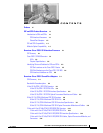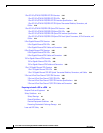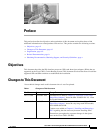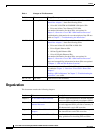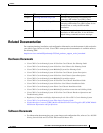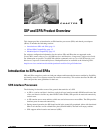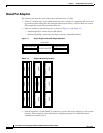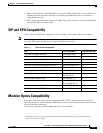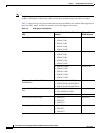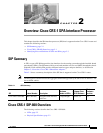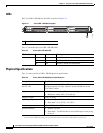
CHAPTER
1-1
Cisco CRS-1 Carrier Routing System SIP and SPA Hardware Installation Guide
OL-7113-05
1
SIP and SPA Product Overview
This chapter provides an introduction to SPA interface processors (SIPs) and shared port adapters
(SPAs). It includes the following sections:
• Introduction to SIPs and SPAs, page 1-1
• SIP and SPA Compatibility, page 1-3
• Modular Optics Compatibility, page 1-3
For software configuration information for the various SIPs and SPAs that are supported on the
Cisco
CRS-1 router, refer to Cisco IOS XR Interface and Hardware Component Configuration Guide.
For information on specific Cisco
IOS XR software commands, refer to Cisco IOS XR Interface and
Hardware Component Command Reference. Both publications are available at the following URL:
http://www.cisco.com/univercd/cc/td/doc/product/ioxsoft/iox34/cgcr34/index.htm
Introduction to SIPs and SPAs
SIPs and SPAs comprise a carrier card and port adapter architecture that increases modularity, flexibility,
and density across Cisco Systems routers for network connectivity. This section describes the SIPs and
SPAs and provides some guidelines for their use.
SPA Interface Processors
The following list describes some of the general characteristics of a SIP:
• A SIP is a carrier card that is similar to a physical layer interface module (PLIM)s and inserts into
a line card chassis slot like any other PLIM. Unlike PLIMs, SIPs provide no network connectivity
on their own.
• A SIP contains one or more subslots, which are used to house one or more SPAs. The SPA provides
interface ports for network connectivity.
• During normal operation, the SIP should reside in the router fully populated, either with functional
SPAs in all subslots or with a blank filler plate (SPA-BLANK=) inserted in all empty subslots.
• SIPs support online insertion and removal (OIR).



